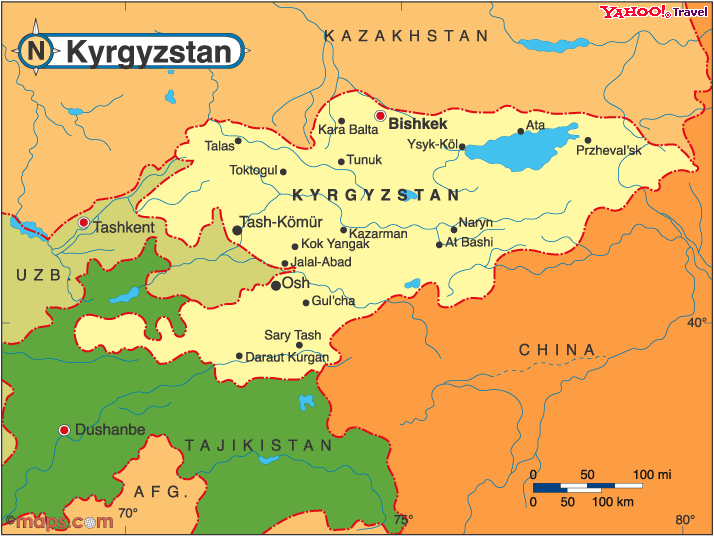
There is a poetic justice in the challenge that rising economies pose to the West. Countries formerly conquered, colonized and/or dominated by Western powers have transformed humiliation into motivation. In some ways this transformation is a direct result of colonization. Colonization, incidentally or maliciously, was at a fundamental level an exercise in extracting wealth and suppressing the Local. Unsurprisingly, its legacy is nations in disarray. The colonized people recognized this and took steps to remedy the situation, struggling for independence. The anti-imperial ideology most successful at organizing and struggling for independence during the peak of decolonization was Marxism. Once nations like China and Vietnam had shown the Europeans and Americans the door they went about ridding themselves of the colonial past, adopting Marxism or another anti-establishment economic and political structure.
These nations became progressively poorer and generally left behind when compared to the West. After a few decades it became increasingly clear that there were limits to the growth attainable by isolating one's nation from the innovative dynamic West. And now that their political identity had been established and affirmed by years of perhaps rabid anti-Western rhetoric, they could approach the global economy on their own terms and as independent nations.
The very dysfunctional nature of most of the anti-imperial reactionary political economy movements has given these countries a great advantage: free license to reform, to improve by learning from others and innovate when necessary. This general pattern holds true for Vietnam, Eastern Europe, Ireland, India, China, and South Korea. The hardship of dysfunctional economies or government allows people to see opportunity once finally present.
Conversely, the relative ease of living that is the standard today in rich countries of the world breeds complacency. This does mean that people in the West should be singularly driven to work and achieve, burn out and live two-dimensional lives. Still, recognition of the existence of adversity as an opportunity for the spirit, a necessary ingredient for improvement of self and community, is important. Happiness allows people to work better, once you sacrifice too much happiness, you cannot perform at the highest levels.
It is not unlikely that Iraq, in whatever form it exists in 30 years, will be a hub for growth, renewal and hope. Once the hatred has scorched the people for long enough it will leave a fertile desire for stability, decent governance and economic growth. It will likely be an violent interim too evil and ugly to justify the outcome. But then the outcome may be worth any sacrifice. That is the tragic paradox of the post-imperial condition. Unnecessary sacrifice and suffering seems to be an unavoidable stepping stone to future prosperity. There is no equation to equalize suffering and prosperity. To even attempt to justify one with the other would be righteous folly. Even God would have no right to transfer one individual’s extreme suffering for future happiness.
Looking at events in the world today it is apparent how the imperial legacy affects our world. Peru has moved closer to Chilean-style politics as Chavez pushes Mercosur away from the US. Journalists in China debate their right to openly debate within the CCP state; the clock is ticking on the one-party state. The WTO Doha Trade Round collapsed as rich countries are afraid to change and open up their economies to the developing world of cheap labor and agriculture. Were the publics of the rich world better informed, they would be more afraid of the political, economic and ideological consequences of exploitation and the status-quo than of jarring change. Iraq moves closer to all-out-civil war as people cling to the arbitrary borders bequeathed by the British Empire. Somalia moves toward a doomed but probably necessary experiment in self-determination as Islamists gain ground against CIA-backed parasitic warlords. If you were a Somali, you too would probably welcome the Islamists. Iranian Islamists want the bomb so that they can command respect and independence. So many former colonies not yet at peace with themselves and their place in the world.
These situations are important enough that they each demand dialogue in their own right yet most Americans probably are completely unaware of more than a couple of these events. Even regarding Iraq and Iran, while people are broadly aware of the situation right now they are unaware of the historical context of today’s situation. Contrary to what cable news would have us believe, current events do not exist in a historical vacuum. Before people reach conclusions about the propriety of one US policy or another it is their duty to inform themselves of as much of the whole truth as possible.
In the next post I will try to summarize what I know of the relative context of the Islamist critique of the world order. Here is a teaser: it goes a little deeper than ill-educated religious fanatics that hate freedom. Please comment, correct and reveal the gaping holes in my logic.



No comments:
Post a Comment